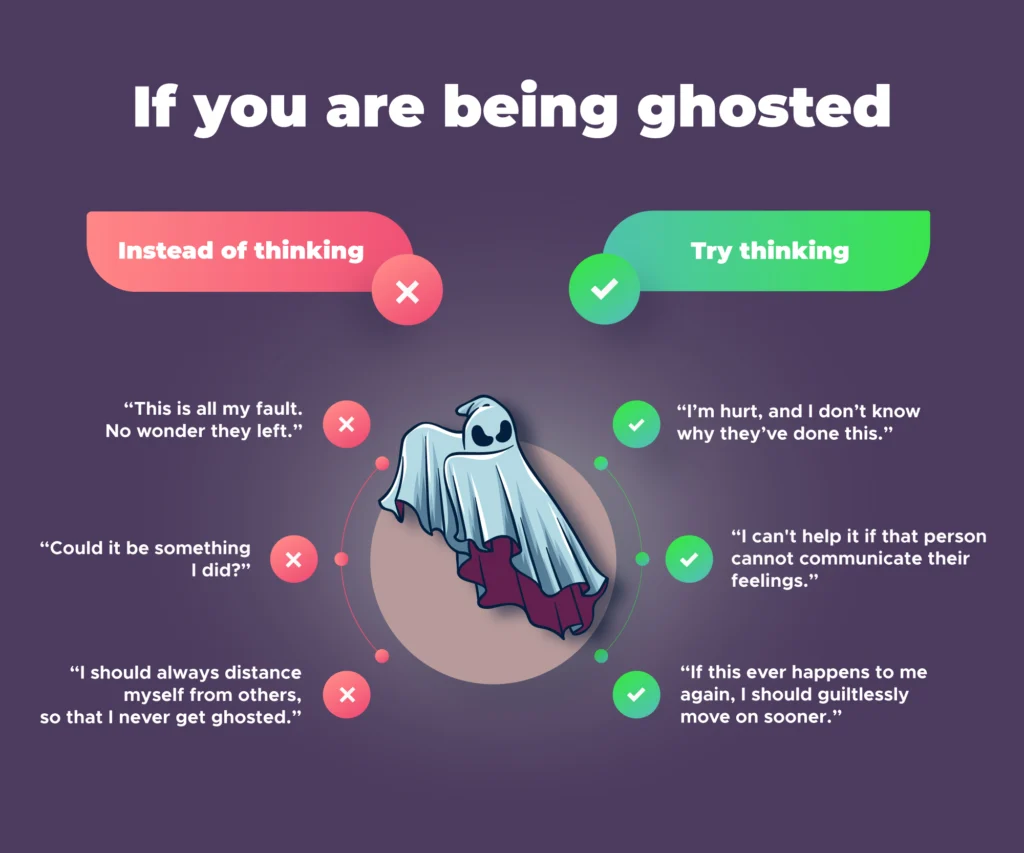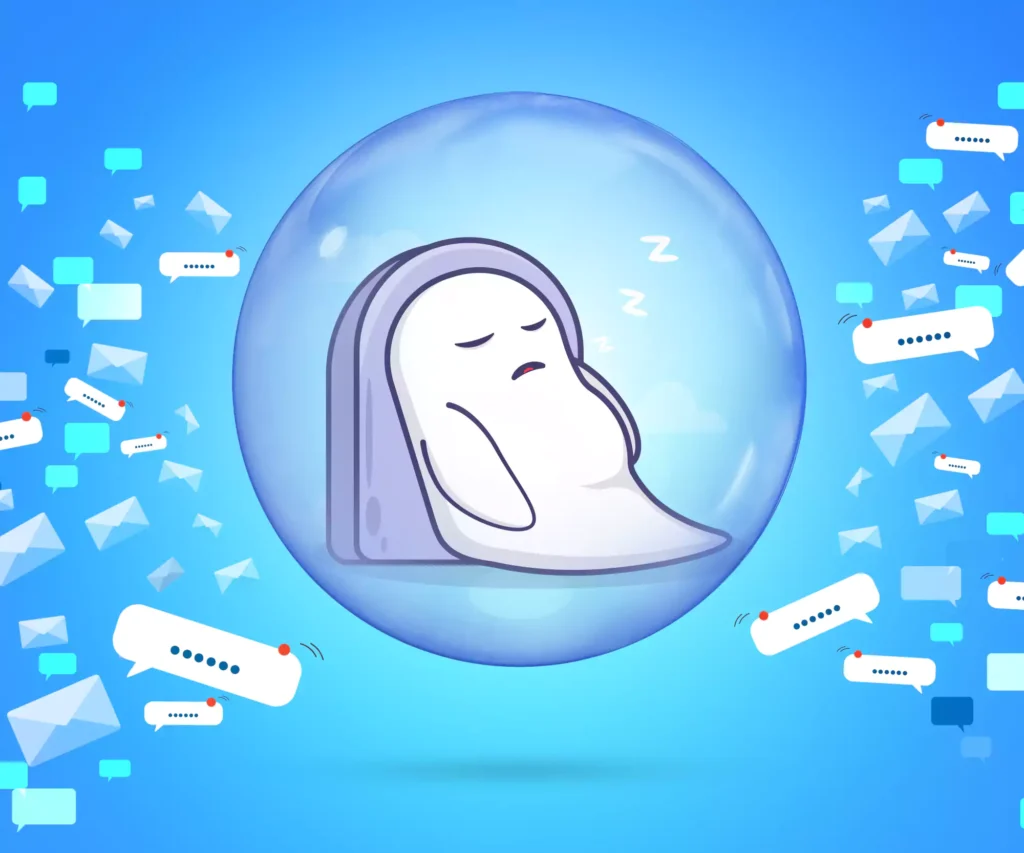Ghosting isn’t a recent trend. For as long as humans have communicated with each other, they have also broken off communication without warning. However, in today’s world, ghosting is much more evident because of instant communication. With devices and social networks that inform us if a message is read or not (thank you, devastatingly accurate ‘read reports’!), we are always conscious of who responds!
What happens when people ghost others?
Ghosting affects all parties involved differently. Have you ever:
- wanted to stop all communication with someone?
- delayed responding to calls or messages, hoping the other person would get tired of staying in touch?
If you have done these things, did you feel justified doing this? Or did you have any residual guilt? According to studies, people ghost because of different reasons, but there’s a similar pattern of causes:
- Anxiety, which makes it hard to communicate and makes one uncomfortable or pressurised, is a primary cause.
- People ghost as a means of avoiding conflict, drama, and the consequences.
- Ghosting is often the easier way out than confronting someone who violated your boundaries or didn’t respect them.
- People often ghost others to avoid emotional attachments and to protect themselves.
- Individuals may choose to ghost out of concern—to shield the other person from hurt feelings.
Ghosting does spare one party from uncomfortable confrontations or awkward situations. Still, it isn’t necessarily healthy and helpful for both parties involved. It might be an easier solution but never a consequence-free action.
What does getting ghosted feel like?
Ghosting is primarily an abrupt end of communication—no warning, no signal, no explanation. Such an end of communication can leave the ghosted person in a dilemma, wondering what went wrong. Indeed, they can reassure themselves thinking it wasn’t their fault or that they might be better off without someone who chooses to vanish than confront. At the same time, the person who is the victim of ghosting might still be trying to figure out the reasons inside their head. A lot of personal insecurity comes out, mainly when they can find no concrete answers.
This can further result in lower self-esteem, self-worth, and anxiety. From struggling to find the answer to failing to cope with the sudden disappearance, the effects can result in self-sabotaging thoughts where they end up blaming themselves. The victim might find it hard to socialise again and begin to isolate themselves from any human relationship to avoid being in this painful spot again.

How does ghosting affect the ghoster?
Ghosting provides a sense of relief, initially. From the ghoster’s perspective, choosing to ghost was slightly nicer than a more blatant rejection approach. However, as time passes, even the ghoster might feel guilty about such actions and want to clear the air. It is possible to use ghosting as an alternative to indulging in difficult situations or uncomfortable confrontations. A habitual ghoster might eventually reach a point where they keep ghosting people when things get slightly complicated. Such behaviour is extremely unhealthy in the long run. These actions may also prevent them from developing communication skills or healthy relationships.
Additionally, ghosting is often associated with negative personality traits or even personality disorders. However, these associations are not proven or conclusive.
How to cope if you are a victim of ghosting
Being ghosted is not pleasant, as we have established by now. After someone disappears suddenly, it’s hard not to feel regret, embarrassment, and shame. While ghosting feels so personal, it’s important to remind yourself that it’s not about you. It’s about the ghoster.
However, coming to terms with this realisation isn’t always easy, and it often takes time to process the event. The first concern after being ghosted is the belief that everyone will ghost you. Consequently, you may withdraw more from social gatherings or communications to protect yourself. However, it is also essential not to misunderstand a delayed response as ghosting. Tracking their ‘last seen’ or monitoring their online communications might only worsen your mental health.
Talking to a therapist or seeking professional help is beneficial in such a situation. A trained therapist would help you deal with the inevitable feelings of hurt, confusion and rejection. Being mindful at a time like this is instrumental to your overall mental health. At the same time, remind yourself that your feelings are valid. Be kind to yourself and take a break if needed. You are not to blame for someone walking out of your life. Nor is it your fault that the other person couldn’t communicate the truth maturely.
What if you’re the ghost?
In the age of instant internet and social media, ghosting has become overly prevalent. When you no longer want to be in contact with all of these online acquaintances (friends, followers, you name it), it’s natural to trim this list down. However, being responsible towards the person you often interact with is only fair and polite. It is wise to consider putting yourself in the other person’s shoes and see how you’d feel if the roles were reversed. Being honest and open about wanting or not wanting a specific relationship is always an excellent approach to life. At the same time, if someone is making you uncomfortable and calling that person out seems complicated, ghosting might be convenient and useful.

